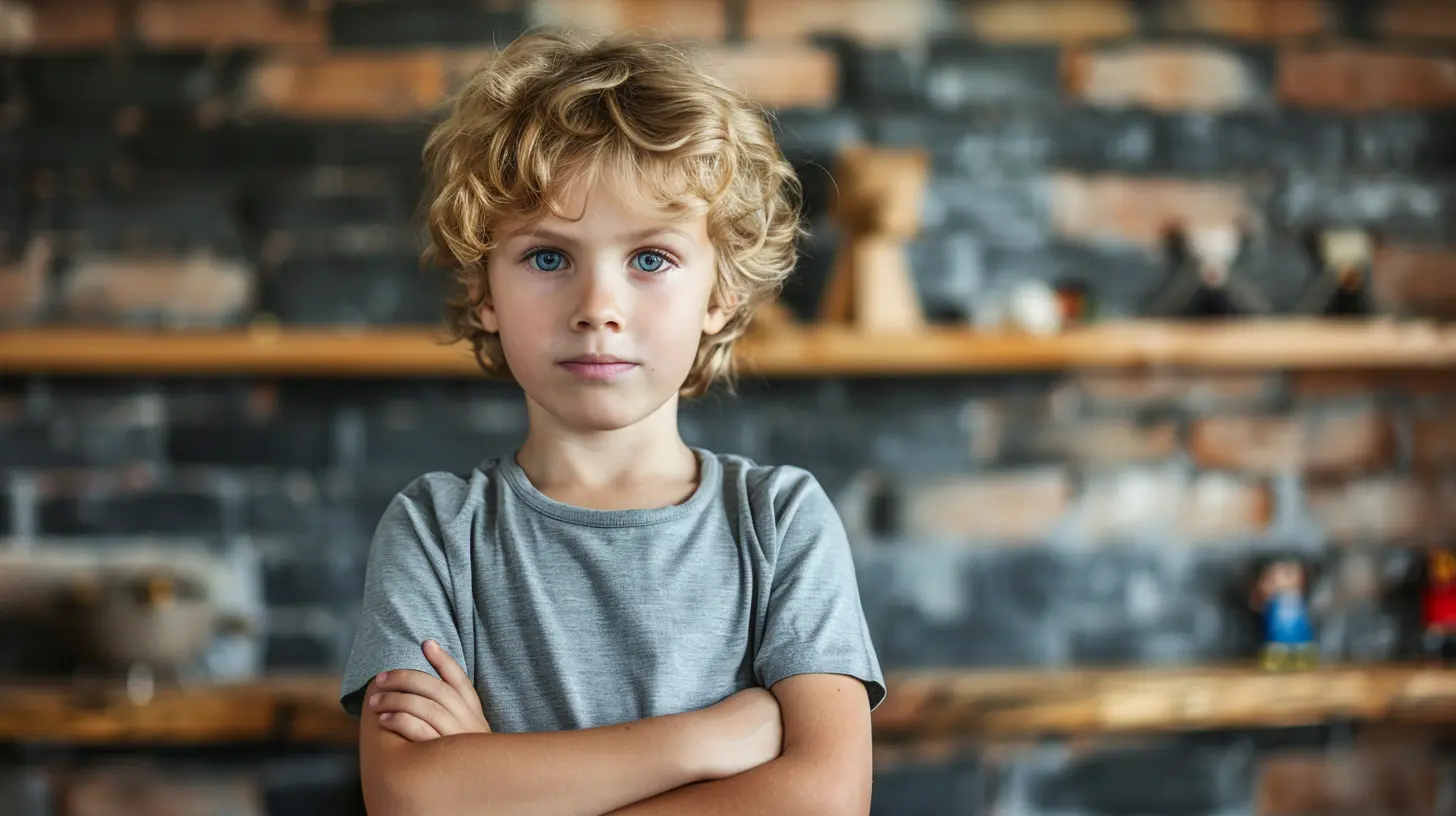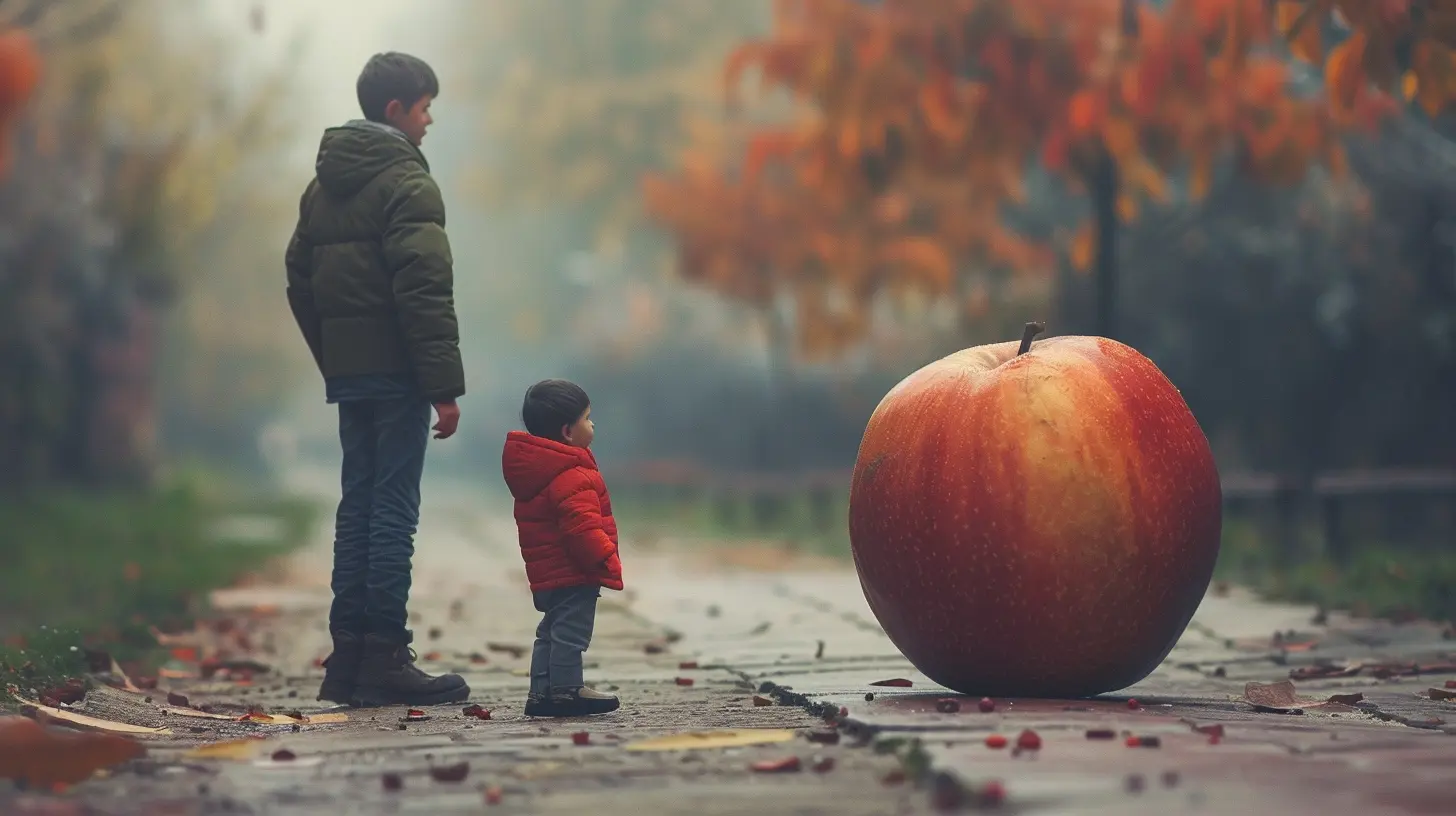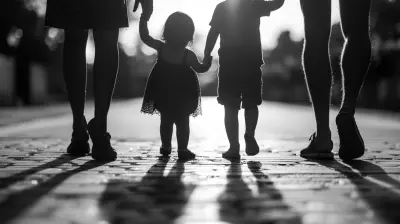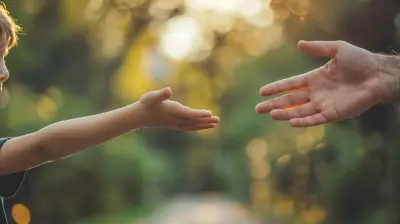Empowering Kids to Make Responsible Choices
12 June 2025
As parents, one of the most important life skills we can teach our kids is how to make responsible choices. Life is full of decisions—some big, some small—but every choice has consequences. Helping our children understand this and guiding them in making thoughtful, responsible decisions will shape their future in incredible ways.
But how do we teach kids to make responsible choices? Do we just tell them what to do and hope they follow along? Or do we let them make mistakes and learn from them? The answer lies somewhere in between. Let’s dive into some practical strategies that will empower kids to make responsible choices on their own.
Why Teaching Kids to Make Responsible Choices Matters
From what they eat for breakfast to how they handle friendships and peer pressure, kids make countless decisions every day. Teaching them responsibility early helps them:- Build confidence in their judgment
- Develop problem-solving skills
- Understand the consequences of actions
- Reduce impulsive decision-making
- Create a sense of independence
By allowing children to practice decision-making in a safe environment, we prepare them for adulthood, where responsible choices will determine their success and happiness.
The Role of Parents in Guiding Decision-Making
Kids aren’t born knowing how to make great choices—it’s something they have to learn. As parents, our role isn’t to make every decision for them but to equip them with the tools to decide wisely. Here’s how we can do that:1. Lead by Example
Kids mimic what they see. If they observe you making responsible choices, they’re more likely to follow suit. Whether it’s budgeting, eating healthy, or treating people with kindness, your actions teach them more than just words ever could.2. Give Them Age-Appropriate Choices
Start early by offering simple, age-appropriate choices. For toddlers, it could be choosing between two outfits. For school-aged kids, it might be deciding how to spend their allowance. Older kids can take on more complex decisions, like balancing schoolwork with extracurricular activities.3. Encourage Critical Thinking
Instead of giving them all the answers, ask questions that promote thinking. For example:- What do you think will happen if you don’t complete your homework on time?
- How do you think your friend felt when you said that?
- What’s a better way to handle the situation next time?
Having these discussions helps kids develop reasoning skills rather than just following instructions blindly.
Teaching Kids About Consequences
One of the best ways for kids to learn responsibility is by understanding consequences. Every decision has an outcome—sometimes positive, sometimes negative.1. Natural Consequences
Sometimes, it’s best to let kids experience the natural consequences of their actions. If they forget their lunch, they’ll be hungry. If they don’t study, they might get a bad grade. These real-life experiences teach valuable lessons that words often can't.2. Logical Consequences
When natural consequences aren’t enough (or could be harmful), logical consequences come into play. If a child refuses to share their toys, they lose playtime privileges. The key is to make the consequence related to the misbehavior so they understand the connection.3. Rewarding Good Decisions
Positive reinforcement encourages responsible choices. Praise your child when they make a wise decision—whether that’s helping a friend, managing their time well, or making a healthy snack choice. Recognition goes a long way in reinforcing responsible behavior.
Helping Kids Handle Peer Pressure
Peer pressure is one of the biggest challenges when it comes to decision-making. Kids, especially teenagers, want to fit in, and this can sometimes lead to poor choices. Helping them stand their ground is crucial.1. Role-Playing Scenarios
Practice makes perfect. Go through potential peer pressure situations and discuss how they can respond. For example:- “What would you do if a friend asked you to cheat on a test?”
- “How would you respond if someone pressured you to try vaping?”
These exercises prepare them for real-life situations.
2. Encouraging Assertiveness
Teach them how to say "no" confidently. Phrases like:- “No thanks, I’m not into that.”
- “I’d rather not.”
- “I don’t think that’s a good idea.”
help kids communicate their stance without feeling awkward.
3. Helping Them Choose the Right Friends
Friends have a huge influence on decision-making. Encourage friendships with kids who share similar values and make good choices.Teaching Responsibility Through Everyday Activities
1. Household Chores
Assigning chores teaches kids responsibility. Whether it’s making their bed, washing dishes, or taking care of a pet, these tasks instill discipline and accountability.2. Handling Money
Giving kids an allowance and letting them manage their money helps them understand financial responsibility. Teach them how to save, spend wisely, and give to charity.3. Decision-Making in Schoolwork
Allow them to manage their assignments and projects. If they procrastinate and face stress, they’ll learn the importance of time management.Encouraging Emotional Intelligence in Decision-Making
Good decision-making isn’t just about logic—it’s also about emotions. Teaching kids to recognize their emotions helps them make better choices.1. Helping Them Identify Emotions
Encourage kids to express how they feel. When they’re angry, frustrated, or excited, ask why. Understanding emotions helps them manage reactions better.2. Teaching Self-Control
Impulse decisions often lead to regrets. Teach them techniques like deep breathing, counting to ten, or taking a walk before making an important choice.3. Practicing Empathy
Empathy helps kids consider how their decisions affect others. Ask them:- “How do you think your friend felt when you didn’t invite them?”
- “Would you like it if someone did that to you?”
Putting themselves in others’ shoes fosters kind and responsible decision-making.
Allowing Room for Mistakes
No one makes perfect choices all the time—not even adults. Kids will make mistakes, and that’s okay. The key is helping them learn from those mistakes instead of punishing them harshly.- Instead of saying, "I told you so!", ask, "What do you think you can do differently next time?"
- Instead of punishing failure, focus on problem-solving.
When kids see failure as an opportunity to grow rather than something to fear, they’re more likely to take responsibility and make better choices in the future.
Wrapping It Up
Empowering kids to make responsible choices isn’t about controlling them; it’s about guiding them. By leading by example, allowing appropriate choices, teaching about consequences, and fostering emotional intelligence, we help our children become independent, confident decision-makers.Sure, they’ll stumble along the way, but that’s part of growing up. Our job as parents isn’t to shield them from every mistake but to equip them with the tools to navigate life’s challenges wisely. After all, responsible choices today set the foundation for a successful and fulfilling future.
all images in this post were generated using AI tools
Category:
Teaching ResponsibilityAuthor:

Liam Huffman
Discussion
rate this article
3 comments
Thaddeus Cox
Empowering kids to make responsible choices nurtures their confidence and independence. By guiding them with love and patience, we equip them with vital life skills that foster resilience and wisdom.
June 21, 2025 at 2:36 AM

Liam Huffman
Thank you for your insightful comment! Empowering children indeed builds their confidence and resilience, equipping them for a brighter future.
Allegra Larsen
Empowering kids to make responsible choices is a beautiful journey that nurtures their confidence and independence. By fostering open communication and providing guidance, we equip them with the tools they need to navigate challenges. Together, let’s celebrate their growth and watch them thrive!
June 19, 2025 at 3:18 AM

Liam Huffman
Thank you for your thoughtful comment! I completely agree—empowering kids through communication and guidance is essential for their growth and independence. Let's continue to support their journey!
Xeno Fuller
Empowering our kids fosters independence and critical thinking, equipping them to navigate life's challenges confidently. Let's lead the way!
June 18, 2025 at 3:47 PM

Liam Huffman
Absolutely! Empowering kids is essential for building their independence and confidence. Let's continue to support their growth!



